Russia expels ten diplomats from the Baltic states
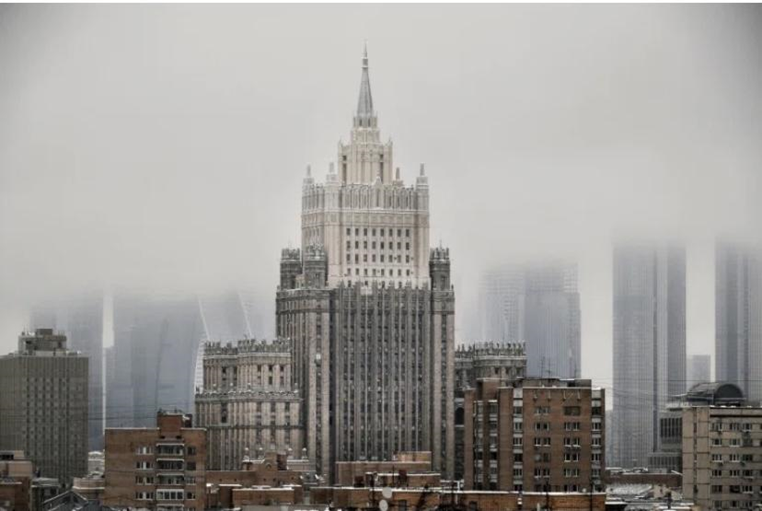
Retaliation from Moscow weeks after Lithuania, Estonia and Latvia expelled Russian diplomats.
Russia announced on March 29 the expulsion of 10 diplomats as a tit-for-tat response from the three Baltic states. Earlier last month, the three Baltic states had expelled ten diplomats in a coordinated way. According to Latvia, the Russian diplomatic activities had been at odds with their diplomatic status. Russia’s invasion of Ukraine is considered the precursor.
Russia’s foreign ministry called in the ambassadors of three countries, stating the actions against their diplomats by the Baltic countries as ‘provocative’ and ‘groundless’. Once a part of the former Soviet Union, Latvia, Lithuania and Estonia are now members of the European Union and NATO. They have also strongly backed sanctions imposed by the West on Moscow over their actions in Ukraine.
Earlier this month, after Bratislava expelled three Russian diplomats for espionage, Russia expelled three Slovak diplomats in a tit-for-tat response. Furthermore, North Macedonia expelled five Russian diplomats, saying they violated diplomatic norms. The US, Poland, and Bulgaria made a string of similar moves earlier this month.
By Deeplaxmi Patil - Batch 20-22
Turkey Pardon to Ukraine – Russia Peace Talks
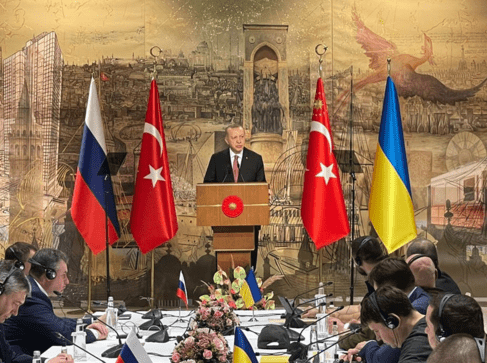
In over a month since the Russian invasion of Ukraine, attempts at having "Peace-Talks" between the two sides took place in Istanbul, Turkey, on 29 March 2022. The talks bring some rays of hope from amidst the dark clouds of war over the region, as Ukraine presented its 'proposal of neutrality', one of Russia's biggest perceived threats. Following the talks, Russia has supposedly offered a substantive shift in the focus of its 'Special Military Operations' of 'de-nazifying the Eastern- Ukrainian Region' to settling on territorial gains. In its peace proposal, Ukraine has shown readiness to meet one Russian demand of not being a NATO member, but it shall seek security guarantees from key countries like the Permanent five and Israel, Canada, Turkey, Germany and Poland. The territorial issues in the Donbas region shall be discussed directly between Putin and Zelensky, which shall also include talks on the fate of Crimea.
Far from a Ceasefire, Russia has still assured de-escalating its military action in Kyiv and Chernihiv. Russian troops are also backing out of Chernobyl after reportedly being exposed to radiation at the nuclear site. However, Ukraine interprets this as a hypocritical Russian military tactic to prepare for powerful attacks in the South-eastern region.
By Riddhi Kothawale - Batch 20-22
Wang Yi arrives in Delhi- Will there be a thaw?
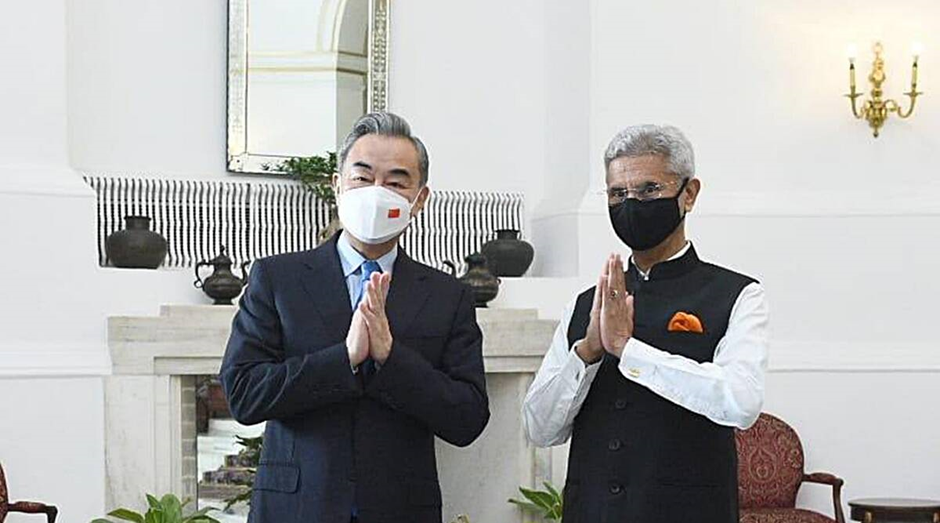
Source: India Today
The last week saw a surprise visit by Chinese Foreign Minister Wang Yi. Chinese Foreign Minister met India’s External Affairs Minister and National Security Adviser. The visit was seen as Beijing reaching out to New Delhi in an attempt to mend ties ruptured due to standoffs and violent clashes in eastern Ladakh and Pangong Lake in 2020. Beijing clearly wanted to revive the bilateral dialogue and set the stage for BRICS. The Chinese also proposed a series of high-level visits by top politburo members and key officials of the Chinese Government.
However, the visit did not yield much. The only thing the two sides agreed on was having an immediate ceasefire in Ukraine. Wang Yi already had created a problem before the visit by intervening on the Kashmir issue and sharing the same idea as many Islamic nations. It got a harsh response from India as New Delhi also reminded the leadership in Beijing that “India refrains from the public judgment of their internal issues”.
The idea of improvement in ties seems far-fetched as the two sides do not seem to have common ideas on the future of their relationship. India’s foreign minister clearly stated that the relationship was not normal today, and it cannot be normal if the situation in the border areas is abnormal. Therefore, the visit hardly yielded anything fruitful and resulted in more questions than answers.
By Rishav Gupta - Batch 21-23
Pakistan’s No-Confidence Vote: The Odds Stand Against PM Imran Khan
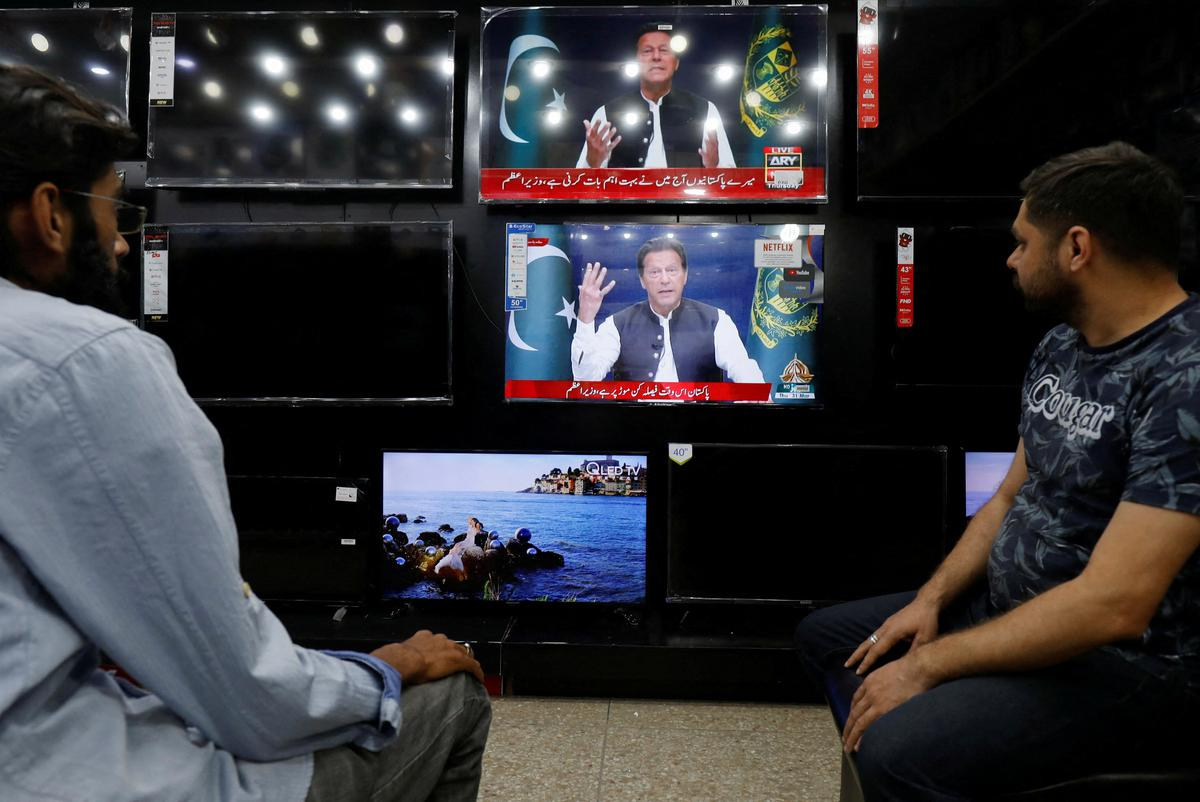
People watch the speech of Pakistan Prime Minister Imran Khan in Islamabad on March 31, 2022
Source: Reuters
The situation in Pakistan is tense as the political fate of PM Imran Khan hangs by a loose thread. Having come to power with promises of an anti-corruption "Islamic welfare state", criticism against PM Khan has been at an all-time high due to the crippling debt and inflation crisis. For instance, from January 2020 to March 2022, India's food inflation has been about 7%, whereas Pakistan's has been around 23%. Now, a no-confidence vote is set to take place on Monday, April 4th.
While the Prime Minister seemed confident initially, a series of activities has led to the belief that he might not go unscathed. With the Muttahida Qaumi Movement-Pakistan (MQM-P) switching allegiance to the opposition on Wednesday, PM Khan's ruling coalition has lost its majority in the parliament. He needs 172 votes in the 342-member National Assembly to win, but that seems to be getting tougher by the second as another member of the ruling coalition, the Balochistan Awami Party (BAP), has also joined the opposition. Maulana Fazlur Rehman, chief of the opposition Jamiat Ulema-i-Islama-Fazl (JUI-F), said Khan should resign. In a live address to his country, PM Khan stated that he would not resign from the post and would face the vote of no-confidence.
Many believe that one of the major reasons behind the Pakistani leader's political crisis is that he is no longer the favoured candidate of the military, who are a major decision-maker in Pakistan's political scenario. There have been two other prime ministers who faced the vote of no-confidence. What remains to be seen is whether third time is the charm or would Mr Khan be just like the rest of the Pakistani Prime Ministers; unable to complete a five-year term.
By Samanya Sharma - Batch 20-22
OIC, U.S criticizes Houthi attack as Aramco oil depot burns in Jeddah
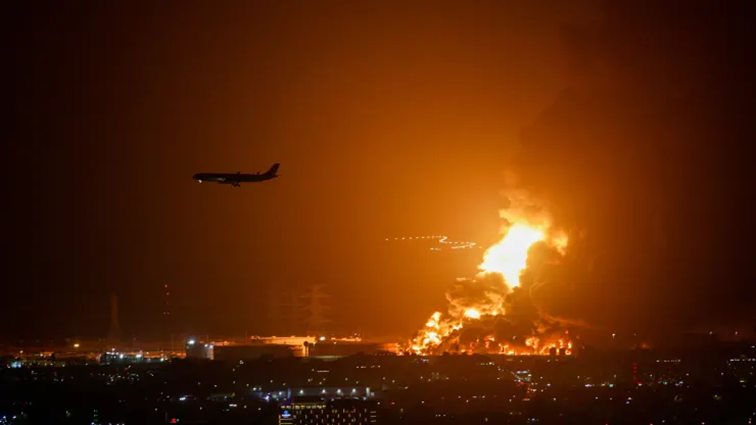
Source: https://www.cnbc.com/2022/03/29/was-it-worth-it-f1-race-in-saudi-arabia-raises-questions.html
The Houthi rebels of Yemen have again unleashed a series of attacks against Saudi Arabia. On 26th March 2022, drones launched by the Houthi rebels stroke the state-run Aramco. The Houthi military spokesperson Yahya Sarea has acknowledged the attack. The U.S and the Organization of Islamic Cooperation have condemned continuous attacks on the Kingdom. The attack has come on a training session day of F1, which has a substantial oil company investment. The missile flew past the Saudi Arabian Grand Prix hitting an oil facility close to the event venue. The overnight airstrikes resumed over Sana’a and Hodeida following the drone attack.
By Anirban Dutta - Batch 20-22